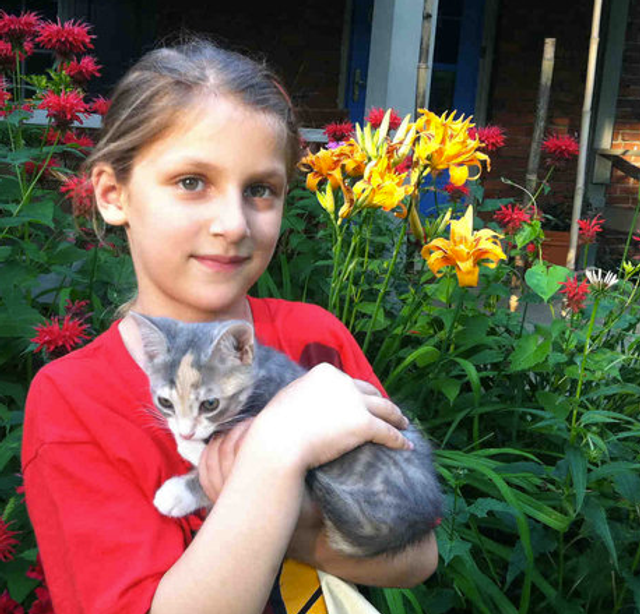Nine fundraising tips you can learn from a savvy seven-year-old
- Written by
- Michael Rosen
- Added
- May 20, 2013

Like Art Carey, a columnist for The Philadelphia Inquirer, summertime might conjure images for you of a lemonade stand in a Norman Rockwell painting. Carey recently wrote about a variation on that image. He told about when he met seven-year-old LilyRuth Mamary who operates a mobile lemonade stand in suburban Philadelphia along with her 11-year-old sister, HannahRose.
The Mamary sisters charge $1 a cup, provide complimentary cookies and donate all of the money to the SPCA. I think the story primarily caught my attention because, when I was eight years old, I began my fundraising career by donating the money I earned from my own lemonade stand to a local charity. But, it also interested me because I recognised some lessons that all fundraisers can learn from the Mamary sisters. So, here’s what you can learn from a seven-year-old and an 11-year-old.
Mission
LilyRuth explained why she wants to raise money for the SPCA, ‘If I could raise some money that would really help animals, they might get adopted and then another animal and another person would be happy.’ It’s a pretty simple statement. It’s not fancy; it wasn’t crafted by a strategic-planning consultant. But it very clearly says what LilyRuth is striving for. It explains her intended outcome. It drives her passion and efforts. Everyone involved in fundraising needs to work for an organisation with a powerful, meaningful, clear mission statement. And, everyone in the organisation needs to know the mission statement. By the way, if you have to explain the mission statement to someone, it’s not a good mission statement.
Passion
LilyRuth and HannahRose are passionate about animals. They each have adopted a kitten from shelters. The family owns two dogs that also came from shelters. For the past five years, the sisters have also volunteered about once a month at local SPCAs and animal shelters. Their passion for the cause comes through when they talk with their customers. Fundraisers need to be passionate about the causes they work for. Prospective donors, in part, will take into account your passion when evaluating whether your organisation is worthy of their support. One way to demonstrate your passion is to donate to the cause for which you work. The Mamary sisters aren’t just satisfied with raising money for a good cause; they’ve ‘donated’ their home to four animals in need.
Mobilise


The sisters could have set up a traditional lemonade stand in the comfort of their own front yard. Instead, they thought they would sell more by loading their lemonade on to a wagon and taking it to a local park that is used by dog walkers and joggers. As a result, business is booming. Fundraisers need to make it easy for donors and prospects to find them. You also need to think of creative ways to spread your message. Are you using social networking services like Facebook, Twitter, and LinkedIn, just to name a few? Are you asking donors to refer prospective supporters? Are you getting out in public and talking up your cause? Like the Mamary sisters, get out there.
Appreciation

The sisters don’t just sell lemonade they give their customers complimentary cookies as kind of a thank-you. What a nice surprise. Who doesn’t like cookies? What nice things are you doing to show your appreciation to your donors? Thank your donors appropriately (see last week’s blog post about thank-you letters). Also, think of creative ways you can recognise donors for their support beyond simple thank-you letters.
Quality

The sisters don’t serve lemonade from a can or carton. Their lemonade is made from organic lemon juice, real sugar, and water. It’s a quality product that shows respect for their customers. Quality counts. Fundraisers need to present a quality image in everything they do. That means looking neat and tidy when meeting prospects and donors. It means not having any spelling errors in your direct mail letters. It means producing high-impact results. You get the idea. Donors have plenty of choices of where they can give their money. Earn their trust and support by ensuring quality in all things.
















